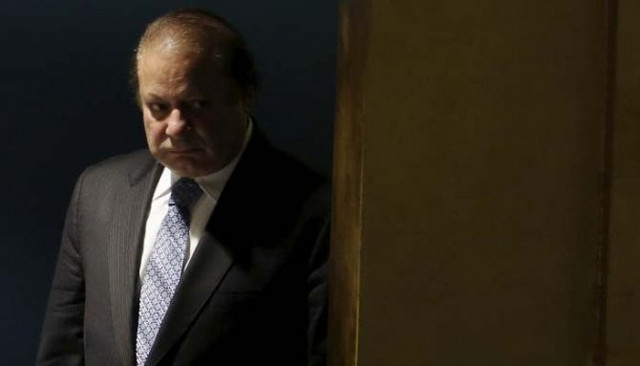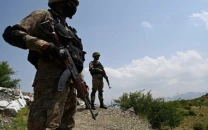NAB opposes transferring pending references against Sharifs
Haris also sought IHC’s help in transferring the two references against Sharif

Petitioner contends NAB law under which accountability courts work is a dead law. PHOTO: REUTERS/ FILE
The references were filed by NAB against former prime minister Nawaz Sharif and his family members.
NAB’s prosecutor requested the court to keep the cases before the same accountability court “in the interest of justice”.
NAB’s Deputy Prosecutor-General Sardar Muzaffar Abbasi presented arguments before the IHC’s division bench, comprising Justice Aamer Farooq and Justice Miangul Hassan Aurangzeb.
NAB authorises reference against ex-PM Gilani, others
He suggested that the references should be heard by the same court that had decided the Avenfield reference.
The prosecutor said that the Accountability Court Judge Mohammad Bashir is the senior-most judge in the subordinate judiciary of Islamabad and since he had heard all references against Sharif, Maryam Nawaz and her husband Captain (retd) Safdar, these references should not be transferred to any other court.
Sharif’s counsel, who concluded his arguments on the transfer application on Thursday, informed the bench that while rendering July 6 judgment, the trial court had ruled that 12 points were common in references relating to Al-Azizia and Hill Metal Establishment and Flagship and other companies.
Challenging the judgment, Sharifs’ counsel sought the sentence to be suspended.
No relief for Sharifs as IHC adjourns cases till after elections
Haris also sought IHC’s help in transferring the two references against Sharif and his sons, Hassan Nawaz and Hussain Nawaz, to some other court.
Defining various types of biases, Haris said that he was not “imputing any actual pecuniary bias or interest” on part of the judge, but he had “disclosed his mind”.
Citing more than three dozen judgments to support his arguments, he said that the accused feared that the judge might have “a conscious or unconscious pre-disposition” on factual aspects of the case common to all three references.
The case, he said, had been “finally and conclusively decided in the Avenfield case, which may tend to prejudice the accused”.
He concluded that “a reasonable person would apprehend such a bent of mind in … a case”.
On Monday, Justice Aurangzeb asked if he thought that the judge who had discarded an agreement in 1980 might treat this as valid evidence in the other two references.
Abbasi said that the judge could pass a similar verdict if the accused had not produced any other evidence in their defence and rely on the same plea as they did in the Avenfield properties reference.
He, however, added that the judgments could be different if the defence team produced tangible evidence and produced relevant witnesses.
Justice Aurangzeb pointed out that cases were complicated and facts were interconnected in the references.
IHC seeks precedents in NAB references against Sharifs
Abbasi said that despite similarities in pending references, the trial court judge might not be changed as the trial in pending references was also in the final stage.
He also said that the trial judge could disassociate himself from the trial and in this case, he had already referred the matter to the IHC’s chief justice.
Abbasi said that the Sharifs would not have sought the transfer of references if the court had acquitted them in the Avenfield case.
In response, Justice Farooq remarked that then NAB would have sought the transfer of cases.
The judge observed that the main responsibility of establishing the case was on prosecution and the court would see if the prosecution had fulfilled its responsibility.
Meanwhile, Sharif’s application seeking suspension of sentences could not be taken up again because of a shortage of time.
NAB’s prosecutor would continue presenting arguments on Tuesday (today).



















COMMENTS
Comments are moderated and generally will be posted if they are on-topic and not abusive.
For more information, please see our Comments FAQ